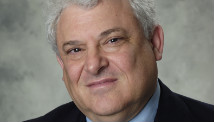Part of complete coverage on
By Ramy Inocencio, for CNN
January 25, 2013 -- Updated 1453 GMT (2253 HKT)
STORY HIGHLIGHTS
- "U.S. fiscal cliff still coming" in form of failure to raise debt ceiling - Cantor Fitzgerald CEO
- More than 25% of CEOs feel world economy will get worse in 2013, says PwC survey
- U.S. House of Representatives passed short-term debt ceiling increase Jan. 23
- Lutnick: "Dumb lending" caused 2008 credit crisis
Hong Kong (CNN) -- The world thought the U.S. fiscal cliff deadline was December 31, but "the fiscal cliff is (still) coming", says Howard Lutnick, CEO of global financial services firm Cantor Fitzgerald.
"You're going to watch the U.S. do crazy, crazy things this year," Lutnick told CNN's Richard Quest at the World Economic Forum in Davos, Switzerland. "The Republican Party that was elected to control Congress... (is) going to cross their arms and they are not going to raise the debt ceiling ultimately unless they get severe spending cuts, and the Obama administration is not going to give it to them."
If Congress fails to act, the U.S. and the world economy will have a "dreadful" 2013, Lutnick said.
Following this week's PricewaterhouseCoopers survey of global CEO confidence, Lutnick appears to be one of the more than 25% who think the world economy is more likely to deteriorate in 2013.
Despite Lutnick's concerns, on January 23 the Republican-controlled House of Representatives did pass a bill that would allow the U.S. Treasury to borrow new money through mid-May. President Barack Obama has said he would not oppose the proposal if it reaches his desk, although he prefers a long-term debt ceiling increase.
Lutnick adds that to avoid a repeat of the 2008 financial crisis, regulators need to actually address issues that caused it.
"What caused the credit crisis was just dumb lending. When you lend money to people who can't pay you back, you go broke."
Looking ahead to 2013, Lutnick says the biggest risk to global growth is the U.S. hitting the debt ceiling -- whether in the short- or long-term.
"Off the fiscal cliff we go. We (the U.S.) are irrational and we are silly... we are dopey."
Part of complete coverage on
January 23, 2013 -- Updated 1308 GMT (2108 HKT)
Global policymakers, leading thinkers and key entrepreneurs are gathering in Davos. CNN brings you the latest news, views and musings live.
January 23, 2013 -- Updated 1040 GMT (1840 HKT)
As extreme weather events cost the global economy billions each year, the "neglected" risk of climate change seems to be rising to the top of the agenda, Andrew Steer writes.
January 23, 2013 -- Updated 1342 GMT (2142 HKT)
Economic empowerment offers a win-win scenario for Saudi Arabia and its women, Mounira Jamjoon writes.
January 23, 2013 -- Updated 1154 GMT (1954 HKT)
The recession in Europe is entering its fifth year and unemployment doesn't look like it will be returning to normal levels anytime soon.
January 22, 2013 -- Updated 1324 GMT (2124 HKT)
What has been made clear by current events and financial upheavals since 2008 is that the global economy has become truly that -- global.
The globe's greatest economic minds meet in Davos next week. With financial crises in the U.S. and Europe, CNN asks: What is your economic mood?
Many eurozone countries face dropping employment even as basic costs rise. But not everyone is suffering. Explore our interactive for more.
January 23, 2013 -- Updated 0551 GMT (1351 HKT)
In 2013, the greatest risk of conflict lies in the geopolitical struggle between Japan and China, according to Ian Bremmer of Eurasia Group.
January 21, 2013 -- Updated 1502 GMT (2302 HKT)
CNN's Richard Quest explores the topic that will be on every delegate's lips at the World Economic Forum in Davos this year.
January 21, 2013 -- Updated 1500 GMT (2300 HKT)
It was January 25, 2011, when the brisk winds of change from Tahrir Square swept through the Swiss Alpine village of Davos.
January 21, 2013 -- Updated 1357 GMT (2157 HKT)
The world's political and business elite will converge on Europe's highest-altitude town for the annual talk-shop that is the World Economic Forum.
January 21, 2013 -- Updated 1458 GMT (2258 HKT)
On July 1, 2013 the 27-nation European Union will become 28. But is the Adriatic country ready to join Europe's elite club?
January 22, 2013 -- Updated 1133 GMT (1933 HKT)
The great Davos talking shop is now up and running, with delegates of all levels of importance, shapes and nationalities putting the world to rights.
January 21, 2013 -- Updated 1404 GMT (2204 HKT)
After five years in crisis the eurozone's new leader has emerged. With influence reaching from the Arctic Circle to the Mediterranean Sea.













